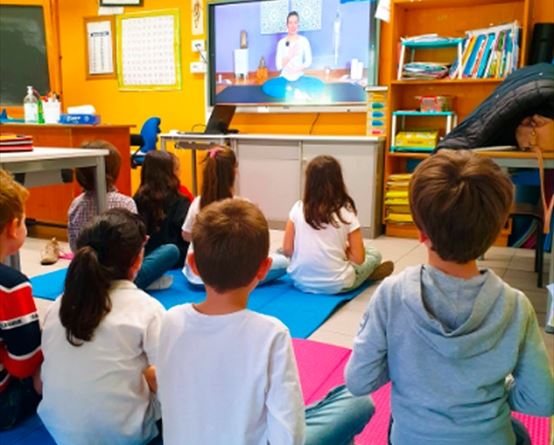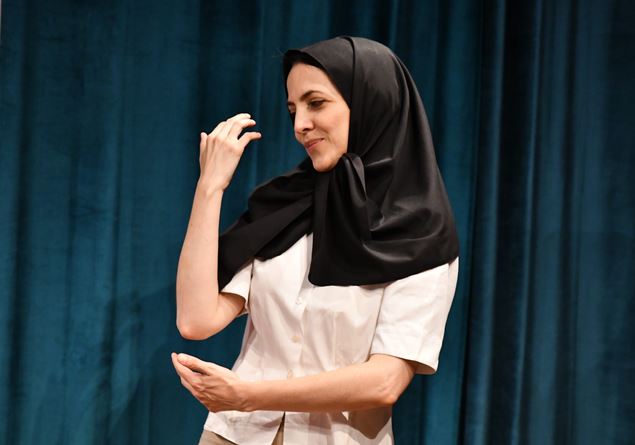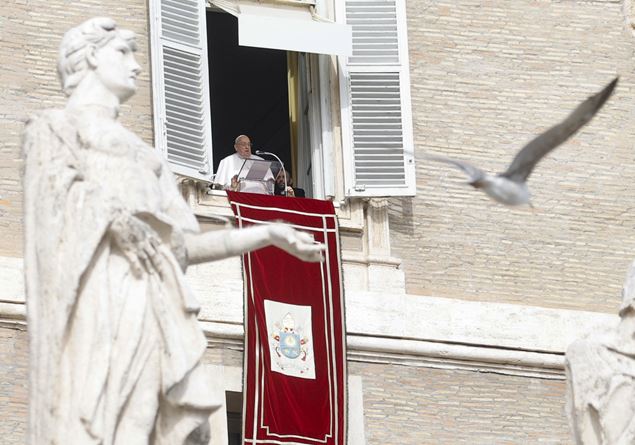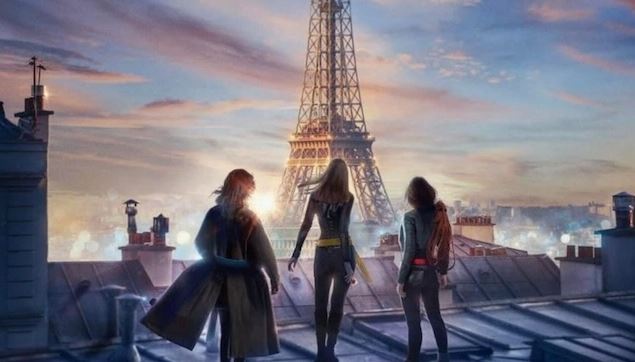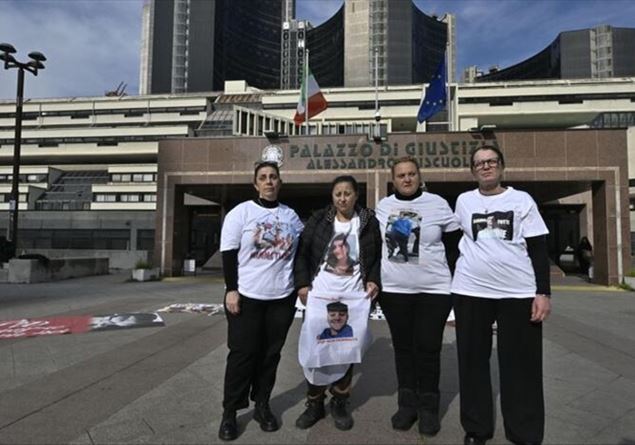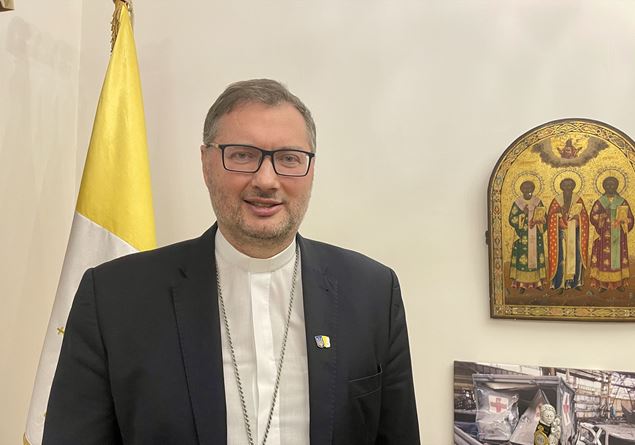
Visvaldas Kulbokas, 50 years old, apostolic nuncio to Ukraine.
Sent to Kyiv
His diplomatic mission to Ukraine began in late 2021, just a few months before the Russian invasion and the start of the war. “If I look at the photos of the first months of the conflict, March, April, May, I can understand exactly what month it is just by looking at the expression of the faces, the environment, the atmosphere that clearly shines through in the images”, he says Visvaldas Kulbokas50-year-old Lithuanian prelate, current apostolic nuncio to Kyiv (he replaced Cardinal Claudio Gugerotti). We meet him in the Nunciature in Kyiv at the end of a morning marked by a missile attack on the capital, where explosions were heard, after a night of massive Russian raids covering many regions of the country, from Zaporizhzhia, to Sumy to Kherson. The Russian offensive continues forcefully, without signs of de-escalation, with the aim of conquering as much territory as possible before arriving at a possible negotiation.
«Every person who arrives here in Ukraine from abroad», observes the Nuncio, «whether they are journalists, humanitarian workers, volunteers or others, are greatly appreciated because they look Ukrainians in the eyes, share their pain, expressing solidarity and compassion full, real. Those who come to Ukraine do so because they truly have an interest in this country. Not like many politicians who make speeches from afar, claim to understand everything and have recipes written down, but their heart is not here in Ukraine.”
Monsignor Kulbokas, Pope Francis never stops praying for the tormented Ukraine, which is always in his thoughts. What role can the Vatican play in this phase of the conflict?
«Such a heavy, complicated war does not lead to easy solutions. The Holy See is also aware that we cannot delude ourselves into easily finding quick exit routes. The Church acts along three trajectories: one is the spiritual one, which means prayer and testimony to the Gospel. In war, a constant reference to God is essential to ask for peace and to announce hope. This is underlined by the soldiers at the front: for them – they say – the presence of the chaplains, and also of the volunteers, is very important, in whom they see a sign of humanity and hope. Chaplains allow soldiers to remember that everything does not end with death. The second field of action is the humanitarian one: the direct help brought by the pontifical almoner Konrad Krajewski; the support of the Bambin Gesù hospital, which in these thousand days of war treated 2,500 children; the activities of the two Caritas – Ukraine and Spes – and the initiatives of various parishes, religious congregations, centers and foundations such as the Dominican Center San Martino de Porres in Fastiv. Furthermore, the Holy See’s humanitarian commitment towards civilian and military prisoners and Ukrainian children who need to be repatriated from Russia must be remembered. The Vatican has an intermediary role: it receives the lists from the Ukrainian authorities and transmits them to the Russian side, through the Secretariat of State or Cardinal Zuppi, the Holy Father’s special envoy to Ukraine. In this regard it should be underlined that the Vatican’s action is not direct. The Holy See exercises a form, so to speak, of intermediation through the Pope’s appeals which – as they confirmed to me – have already had a great influence on the liberation of some prisoners, in particular of two Greek-Catholic priests, Father Ivan and Father Bogdan, seized in Berdyansk. Sometimes the exchange and liberation of prisoners, therefore, is not achieved directly and is not attributable to the action of the Holy See: it is the fruit of a common work made up of many elements – appeals, requests – which in any case is brought forward by the Ukrainian authorities. I would like to underline that we are almost at the end of the third year of the war and often these humanitarian mechanisms become more precise and therefore effective over time, they do not give immediate results.”
The Catholic Church – a minority in Ukraine, a country with an Orthodox majority – is involved on the front line, as you recall, in a capillary, extensive and concrete way in charitable actions, aid and support for the population. Caritas is the first humanitarian agent in the country. Do you think that this charitable commitment has brought Ukrainians closer to the Catholic Church?
«When Caritas Ukraine and Caritas Spes work for the population they certainly do not try to proselytize. But this testimony certainly has an effect: in the regions closest to the front, I have seen it with my own eyes, people cry when they receive help, which can even be just bread, water, essential goods. I receive testimonies from priests and bishops from the East who tell me that new believers have arrived in their churches. In Kherson, where the population has decreased by at least five or six times, the number of faithful in both the Roman Catholic and Greek Catholic parishes has grown. The population is decreasing, the faithful are increasing: it is a phenomenon, perhaps not very widespread, but tangible. The military chaplains tell me that when they go to the front, the soldiers slowly come to them asking for confession, even those who were previously far from the faith. And on the part of the military there is a lot of gratitude. In the parishes of many cities where a large part of the population left due to the war, other people arrived, displaced from other areas, who filled the void left.
Do you think that Ukrainians today feel somehow abandoned, forgotten by the rest of the world, in particular by Europe and the West?
«The war in Ukraine is clearly much more felt in Europe, compared to other conflicts, due to its geographical proximity. However, this does not mean that the level of attention is sufficient. Many expected that international institutions, such as the United Nations, could do something and, faced with the absence of decisive action, they have the feeling of not having been protected and of having been left alone. Speaking of the United Nations, I believe that the fact that we have a Security Council today in which five permanent members have veto rights – the United States, the United Kingdom, France, Russia and China – no longer works because we have delegated to these five members all decisions about war. This mechanism, on which we founded international law, in my opinion no longer works – calling into question many aspects – and should be reformed.”


